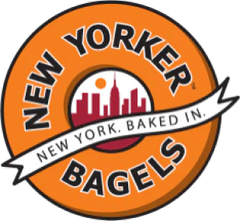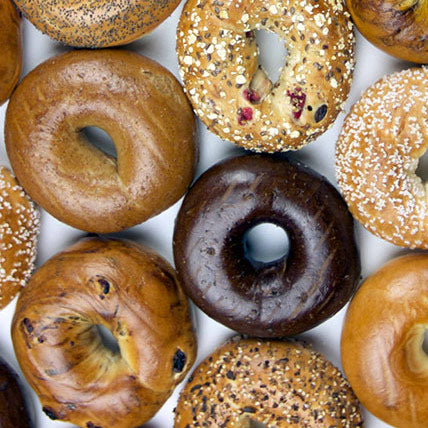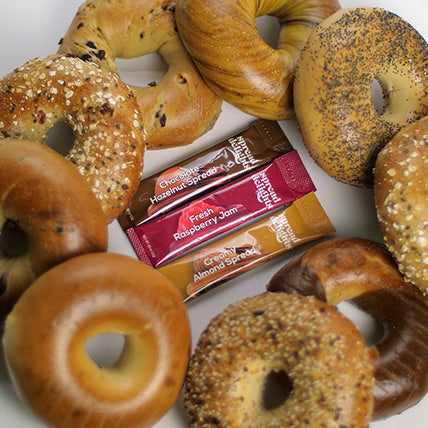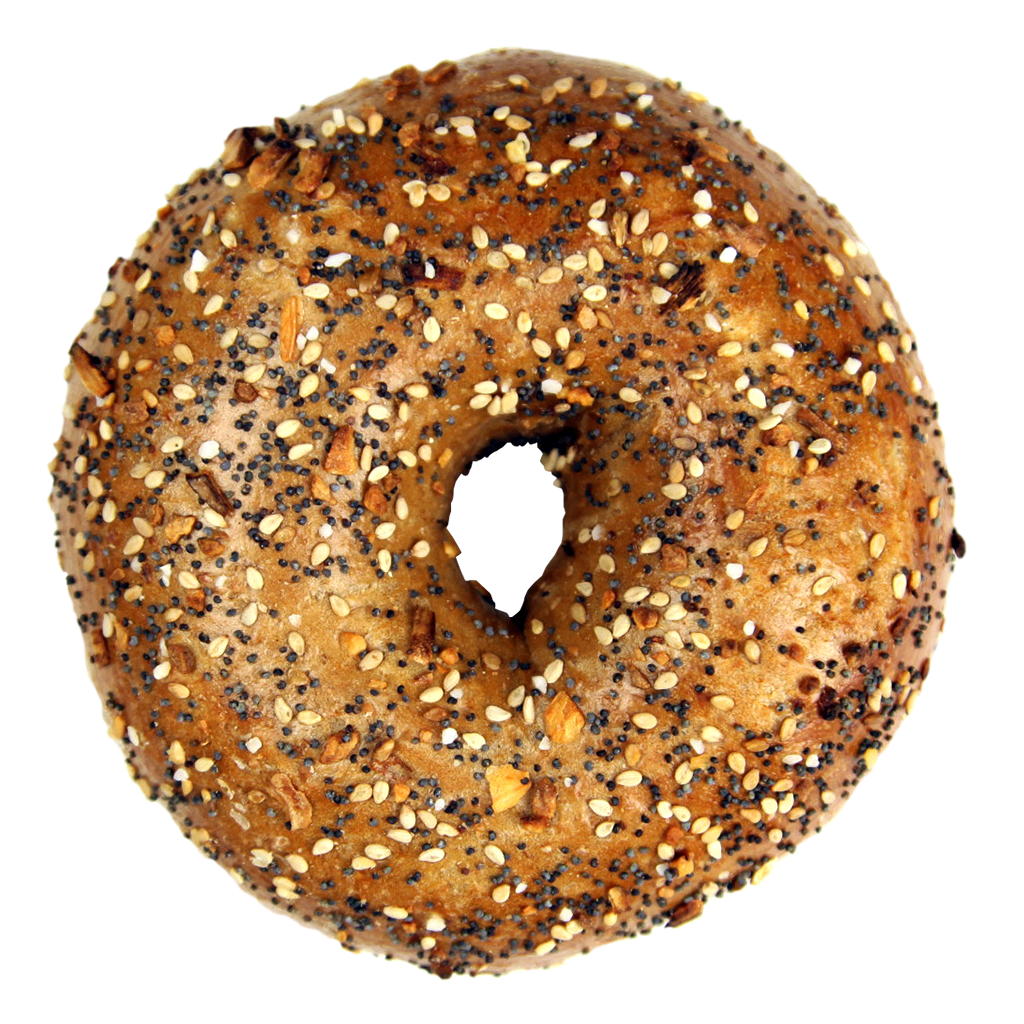While bagels may have originated in Vienna over 300 years ago as a small, rather hard roll with a dense crumb, a shiny dark crust and a heavy flavor, today’s’ bagels are softer, larger and more popular than ever. The rising demand for “authentic” New York bagels that are still easy to prepare and eat is thanks to customer demand – and with bigger donut chains and fast food restaurants corrupting the bagel into something almost unrecognizable, New Yorkers are turning to bakeries and street carts for the real bagel experience – not just for a taste of something extremely traditional, but for their health as well!
According to the A.I.B., over five billion bagels were sold in this country in 1994. This doubled over the next decade and has continued to rise dramatically. Along with demand for quantity, size began to matter as well, with the original bagel of around 3 ounces expanding by more than 100% to become a 6-7 ounce round. A huge range of varieties became available, with sweet flavors added to the mix to satisfy America’s sweet tooth – but the purist shoos away the blueberry and the cinnamon for the more authentic sourdough, everything, and whole grain. 
This last is the ideal meal – a whole grain bagel is, in fact, perfectly positioned for today’s nutritional demands for a low-fat, low cholesterol, high-carbohydrate, grain-based food. Despite comparisons with doughnuts that point out that the calorie count is similar between a doughnut and a cream cheese smeared bagel half, the nutritive content is far and away superior – those calories are not empty! Rather, they include fiber, protein, complex carbs and little or no sugar and fat.
The bagel, in contrast to doughnuts, cereal, and even oatmeal, is an excellent breakfast food. It provides more balance, and doesn’t leave the eater crashing and burning after a few hours like the simpler starches do. With a well topped bagel that combines protein with complex carbohydrates, the average American can coast safely until lunchtime without experiencing the dreaded mid-morning freefall of blood sugar.
The whole grain bagel’s fiber content is another benefit many American’s sorely need – in a world of highly processed foods, red meat and saturated fat, the bagel helps keep the digestive system ticking and reduces the chances of both constipation and diarrhea. This alone should make it a preferred choice for those who fear eating breakfast due to recurring stomach complaints – the bagel requires thorough chewing, a slow rate of consumption, and an even slower digestion, placing the least strain on the system possible.
Bagels are also great for the early morning workout fan – eating a bagel before a run or a stretch at the gym can leave you feeling revitalized instead of exhausted. The carbs kick in near the end of your workout and burn slowly yet steadily to carry you until a more hearty meal can be achieved.
Trade in your simple carb breakfast for a traditional New York bagel stuffed with whole grains and see the difference in your well being. You’ll be glad you did!




























